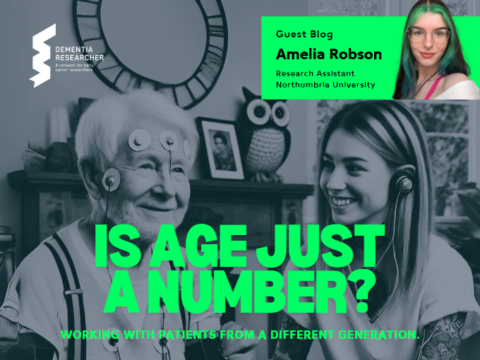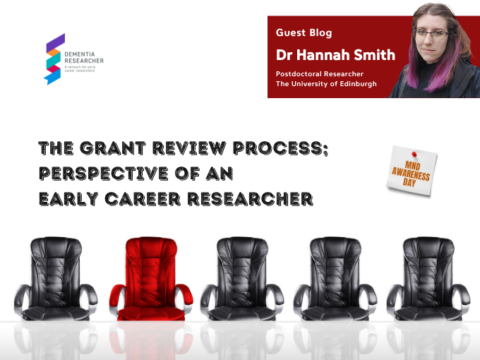After what feels like an eternity (to both me and probably all of you) I did it. I have FINALLY submitted my PhD thesis. I honestly feel like the last couple of months were never ending, but now I can relax for a couple of weeks until I complete the important viva/defence! I feel like no one really prepared me for those last couple of months, especially the writing up stage and oh how I wish I’d been a little more prepared. So, I thought I’d use this month’s blog to tell you a little bit about my own experience and hopefully give you an insight into the process and help you feel slightly more prepared than I was!
The writing up period is such a weird time – because in my head I thought right all I have to do is write up all the things that I’ve been doing for the past few years, EASY, RIGHT? But then I realised oh wow, I’m literally writing up my life from the past few years! I must say, personally I found the writing up stage much harder than I thought it would be. I can’t really pinpoint why I found it so difficult, but I think it was probably due to having to actually do all the writing, the fact that the project is so large, so feels impossible at times and balancing all of the above with my new job!
So here are 5 things that I kind of wish I’d known about to help me prepare for the writing up period!
 At some point you will HATE what your writing – and that is okay. I found the whole writing process super consuming. I’d go to sleep thinking about my work, I’d wake up thinking about my work and this is something I really did not enjoy. I also found that it was far too easy to get into a negative headspace with my writing. I’ve never felt super confident with my writing and when I had bad writing days, where I just couldn’t string coherent sentences together, I would really struggle with my mindset about the whole thesis. My only advice for days like these is that tomorrow is a new day and it’s likely you won’t hate what you’ve written as much the next day. I found I had to be super mindful of giving myself grace with my writing. Which at times was definitely a challenge!
At some point you will HATE what your writing – and that is okay. I found the whole writing process super consuming. I’d go to sleep thinking about my work, I’d wake up thinking about my work and this is something I really did not enjoy. I also found that it was far too easy to get into a negative headspace with my writing. I’ve never felt super confident with my writing and when I had bad writing days, where I just couldn’t string coherent sentences together, I would really struggle with my mindset about the whole thesis. My only advice for days like these is that tomorrow is a new day and it’s likely you won’t hate what you’ve written as much the next day. I found I had to be super mindful of giving myself grace with my writing. Which at times was definitely a challenge!
 You have to find a writing routine that works for you. There is definitely no one way which fits all when writing a thesis. What worked for your friend who wrote their thesis a few months ago may not work for you, and that is totally okay. Are you someone that writes better in a morning? Or are you more a night owl, only able to write late at night? When it comes to writing the thesis, I found it super hard to write in the middle of the day. And, as with most things, I found that I was most productive early in a morning – so that’s when I tried to do the bulk of my writing. I also think that sometimes we forget that to write we need to be in that ‘writing space’. And I found that one of the only ways I could get into that space was by using those early mornings.
You have to find a writing routine that works for you. There is definitely no one way which fits all when writing a thesis. What worked for your friend who wrote their thesis a few months ago may not work for you, and that is totally okay. Are you someone that writes better in a morning? Or are you more a night owl, only able to write late at night? When it comes to writing the thesis, I found it super hard to write in the middle of the day. And, as with most things, I found that I was most productive early in a morning – so that’s when I tried to do the bulk of my writing. I also think that sometimes we forget that to write we need to be in that ‘writing space’. And I found that one of the only ways I could get into that space was by using those early mornings.
 Realistic expectations are important – things always take longer than you think they will. I’m sure I’m certainly not the only one who does this but I often forget how long things actually take. One thing I’ve learned from my time in academia so far is that things will always take longer than you think. And writing always takes you longer than you think! You may only need to write a small section, but writing requires you to read, and think and formulate sentences and that in itself can take a lot of time – especially when you’re not in the writing ‘mood’. I can’t remember who gave me the advice but it was something along the lines of schedule in the amount of time you think it will take to do something…and then double it.
Realistic expectations are important – things always take longer than you think they will. I’m sure I’m certainly not the only one who does this but I often forget how long things actually take. One thing I’ve learned from my time in academia so far is that things will always take longer than you think. And writing always takes you longer than you think! You may only need to write a small section, but writing requires you to read, and think and formulate sentences and that in itself can take a lot of time – especially when you’re not in the writing ‘mood’. I can’t remember who gave me the advice but it was something along the lines of schedule in the amount of time you think it will take to do something…and then double it.
 Writing and editing are two very different things. It’s very easy to forget that writing and editing are two completely different processes. I am definitely guilty of trying to do both at the same time! I think it’s easy to forget that the papers and grants we read have been through heavy editing processes. It’s easy to think, well why does my thesis not sound like that published paper I read this morning? And the first draft of a piece of work is usually VERY different from the end result. So, try and see your thesis as a process, and keep in mind that the start of the process will look very different to the finished product!
Writing and editing are two very different things. It’s very easy to forget that writing and editing are two completely different processes. I am definitely guilty of trying to do both at the same time! I think it’s easy to forget that the papers and grants we read have been through heavy editing processes. It’s easy to think, well why does my thesis not sound like that published paper I read this morning? And the first draft of a piece of work is usually VERY different from the end result. So, try and see your thesis as a process, and keep in mind that the start of the process will look very different to the finished product!
 A good thesis is a done thesis! There is honestly no perfect thesis because science is not perfect. I think once I got to grips with the idea that what I was writing up didn’t have to be perfect, it just had to be done to the best of my ability then that allowed me to push through the writing process. But getting into this mindset is so hard! When we start, we have such high expectations of what our project will be like and how the finished article will look, when actually it is very common that the end result will be super different than the one you thought you’d end up with! So, just do your best, remember you’re the expert on your project and that really does go a long way!
A good thesis is a done thesis! There is honestly no perfect thesis because science is not perfect. I think once I got to grips with the idea that what I was writing up didn’t have to be perfect, it just had to be done to the best of my ability then that allowed me to push through the writing process. But getting into this mindset is so hard! When we start, we have such high expectations of what our project will be like and how the finished article will look, when actually it is very common that the end result will be super different than the one you thought you’d end up with! So, just do your best, remember you’re the expert on your project and that really does go a long way!
So, to any of you who are in the writing process right now, or will be starting the process soon, set realistic deadlines, be kind to yourself and know that you can do it! And always remember, a good thesis is a done thesis. Good luck!

Beth Eyre
Author
Beth Eyre is a PhD Student at The University of Sheffield, researching Neurovascular and cognitive function in preclinical models of Alzheimer’s disease. Beth has a background in psychology, where she gained her degree from the University of Leeds. Inside and outside the lab, Beth loves sharing her science and we are delighted to have her contributing as a regular blogger with Dementia Researcher, sharing her work and discussing her career.

 Print This Post
Print This Post




